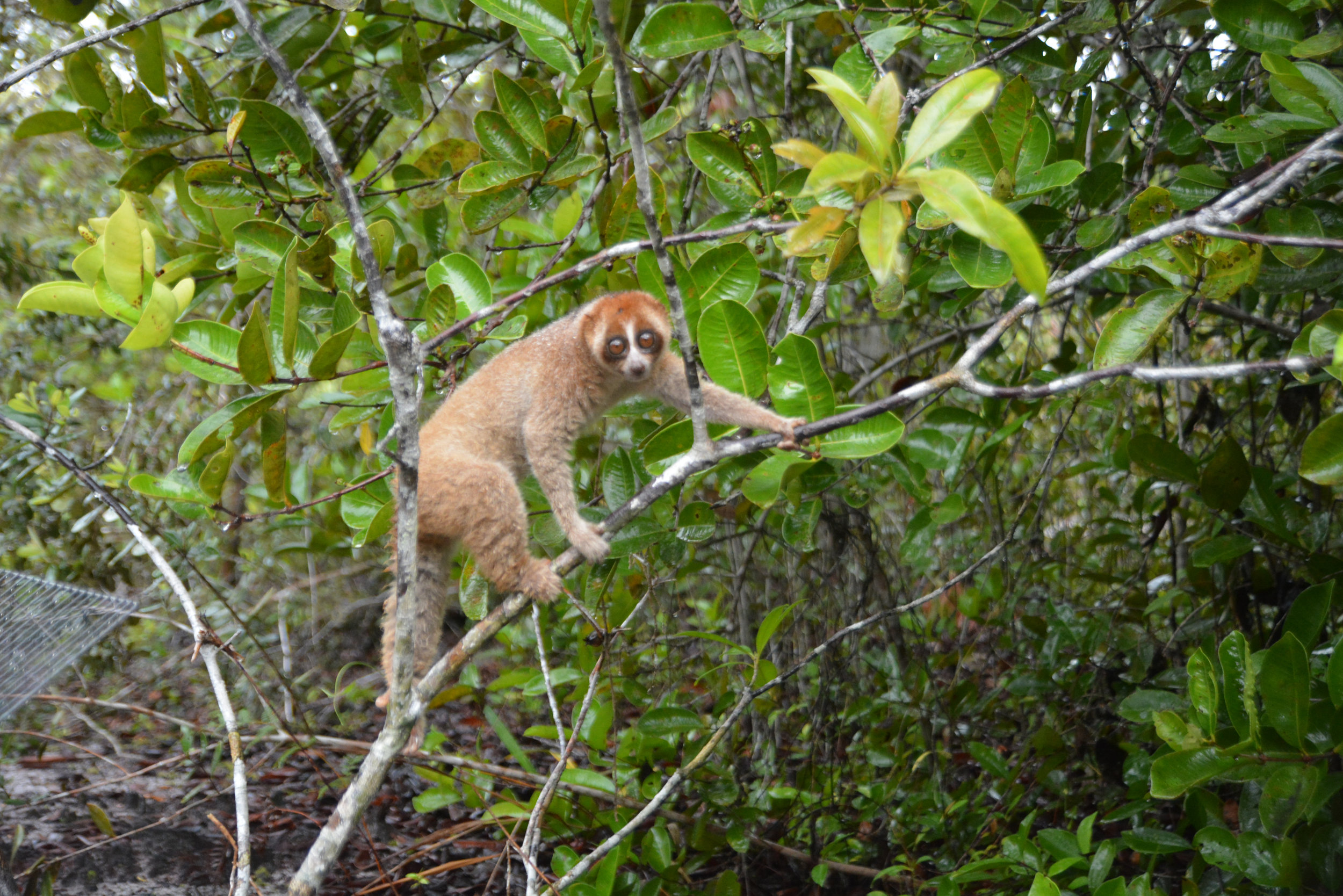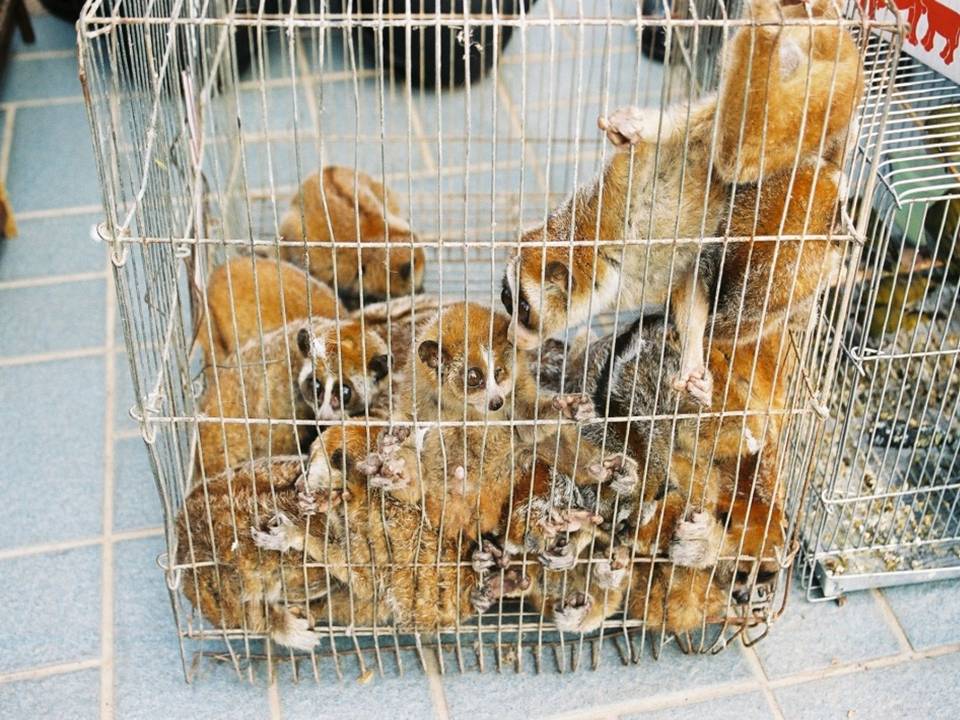The Cost of Being Cute
SLOW LORISES SUFFER BOOMING ILLEGAL PET TRADE - Spring 2015 
Much like the orangutan, the slow loris, also native to South East Asia, enjoys a moist peat swamp forest habitat. It is nocturnal and perfectly adapted to life in the trees. Despite the increased loss of critical forest, this is not the greatest threat that slow loris populations face. As well as being used in traditional medicine, slow lorises are being taken from the wild in their thousands every year to be sold as pets.
All five loris species are now recognised as either vulnerable or endangered and are listed as species threatened with extinction on Appendix 1 of CITES (Convention on International Trade in Endangered Species). Though the trade of slow lorises has been banned both in South East Asia and internationally, the trade system is increasingly active, widespread and being carried out fairly openly, indicating a lack of effective law enforcement. For example, in Japan, slow lorises are advertised publicly for sale, with individual animals fetching between £1000 and £3000.
A recent spate of YouTube videos, presenting slow lorises as cute, cuddly pets, is partly to blame for the demand. There is no denying that the loris’s large bulging eyes, soft furry coat and tiny button nose are pleasing to the eye. But the millions of viewers on YouTube are oblivious to the trauma and suffering of lorises involved in the illegal pet trade.

Forced to live diurnally, in wire cages that rip at their hands and feet, it comes as little surprise that a large proportion of captured lorises don’t make it to market. Furthermore, according to Anna Nekaris, a loris specialist based at Oxford Brookes University, lorises’ teeth are extracted so that vendors can claim they are infants – the preferred pets.
Interestingly, the slow loris is the only primate in the world that is poisonous, producing a toxin that can be fatal to humans by combining saliva from the mouth with oil from a gland on the upper arm. This defence mechanism is transmitted through a bite, further encouraging the cruel methods by which a loris’s teeth are removed in order to make them desirable pets.
When loris infants are captured and separated from their parents, they are unable to clean themselves – their fur is constantly covered in urine, faeces and oily skin secretions – and between 30 per cent and 90 per cent die in transit.
Towards the end of last year, the Foundation was able to release a single slow loris into a protected forest. It is hoped that new loris populations will eventually be able to grow safely within these protected boundaries.